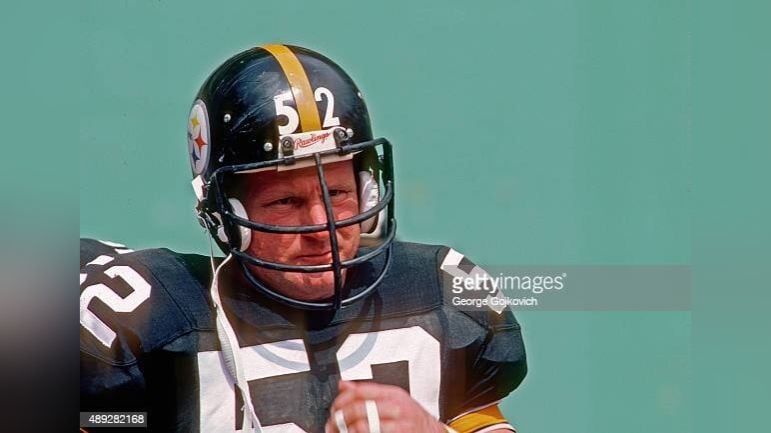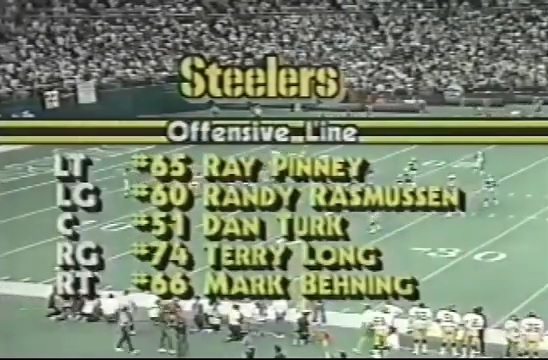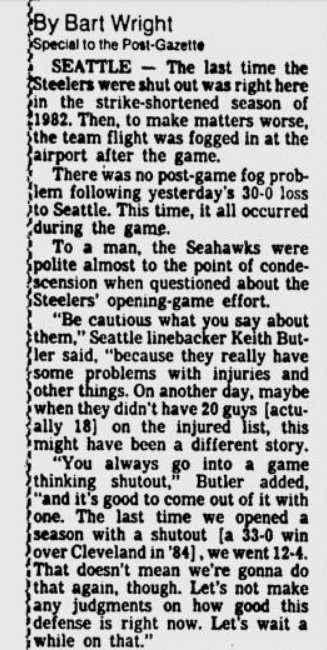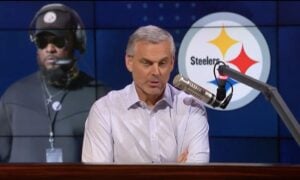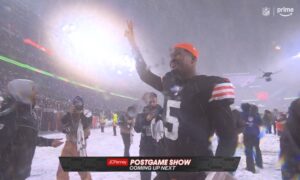A new series we’ll occasionally write about throughout the offseason. Examining some of the greatest streaks in Pittsburgh Steelers history and the games and moments they were broken.
Mike Webster – First Missed Game (1986)
Iron Mike. That was the many they called Webby. The Steelers’ sturdy man in the middle, Webster was undersized but played big. And he always played. Drafted in 1974, he started 149 straight games from 1976 to 1985 season. To put that in perspective, that streak is longer more than the total number of starts Troy Polamalu or Maurkice Pouncey had across their entire careers. Webster simply never left the field.
His good fortunate would end in 1986. Right as he, and the team, expected him to keep chugging along. In the first quarter of the team’s preseason finale against the New York Giants, Webster went down in the first quarter with a hyperextended left elbow. Despite playing through all kinds of injuries and ailments before, this one would reach his breaking point. Listed as doubtful heading into the season opener against Seattle, Webster sat on the bench as Dan Turk got the nod in the middle. Pittsburgh as a whole was beat up in the summer, at one point placing 21 players on injured reserve and dealing with several o-line injuries beyond Webster. Craig Wolfley and Tunch Ilkin (with a strained knee) also fought through the pain. Years ago, Dave Bryan touched on the macro aspect of that game.
When Seattle and Pittsburgh kicked off to open the ’86 season, Webster was out of the lineup. His Ironman streak was over. Wolf and Illkin joined him on the sidelines instead of the lineup. Pittsburgh’s front five was a MASH unit cobbled together with whatever healthy bodies they could find.
Rasmussen was making his first NFL start. There’d only be two more. Turk was also making his starting debut, though he’d have a long career as an NFL backup. And Behning completed the trio, his first – and only – NFL start. Did it show?
Pittsburgh lost 30-0, their first opening shutout in NFL history. The Steelers ran for more yards (85) than they threw (79) and were more than doubled up in total yardage. Starting QB Mark Malone completed nine passes, was sacked three times, and the team turned it over five times. Wide-receiver-turned-tight-end-turned-running-back Warren Seitz finished the game in the backfield. Scott Campbell threw the final two passes at quarterback.
So yeah, it showed.
The team made no effort to hide that fact after the game before flying back from Seattle to Pittsburgh in what had to have been the quietest cross country plane ride in aviation history. The only thing you probably heard was the steam coming out of Chuck Noll’s ears.
Malone admitted with three new starters protecting him, he was too focused on getting the ball out quickly as opposed to getting it to the right person.
“I was maybe a little too self-conscious about that,” he’d tell the Pittsburgh Post-Gazette following the loss.
Years later, he’d say even more. Following Webster’s death in September, 2002, Malone, then host of ESPN’s NFL 2Night (the original name for NFL Live) would write an article for the network, remembering ‘Webby’ fondly and recalling the first game without him.
“I played with him for many years and as the quarterback, there was always a sense of security when Mike was in the game. When Mike dislocated his elbow in 1986, not only did it kill him to be out of the game, I remember thinking, “what are we going to do without Mike Webster in the lineup?”
That sense of security was not limited to his physical presence. With Mike, it was like having another coach on the field. I didn’t have to worry about the offensive line, because Mike took care of that. He would direct guys and answer questions. And he and I were always on the same page.”
Future Steelers’ defensive coordinator Keith Butler was a gracious winner, noting the team’s injuries and when healthy, Pittsburgh was a team who could do damage.
Webster would return after missing a month, starting the Steelers’ Week 5 game against Cleveland. The team’s record didn’t immediately change but he proved to be his usual stabilizing self. After a 1-6 start, the team found some level of traction the rest of the way, winning five of their last nine. All four of their losses were by one-score, two in overtime. Blowouts against Seattle were over.
Webster would spend two more years with Pittsburgh, starting every single game. The only one missed was a contest the entire league sat out due to the 1987 player’s strike. Of course, there’s a worthy debate if Webster should’ve missed some time, his history of concussions and brain injuries leading to his tragic death far too soon. But before any of that was realized, he was just Iron Mike. And for one opener, Pittsburgh felt what it was like to be without.

